Creative Methodologies… notes and musings from a fledgling researcher
This blog originally appeared on the Manchester Migration Lab website
By Thea Soltau, PhD Candidate HCRI, The University of Manchester
As a fledgling researcher, my attention is almost equally divided between my research interests and the research methodology itself. With a background in theatre, education and community arts I am particularly interested in the experiences of academics and practitioners who are employing creative methodologies to conduct their research. The intention of this blog is to reflect briefly on some of the challenges which were raised by the panel entitled ‘Creative Methodologies’ at the Migration Lab’s recent World on the Move conference. read more…
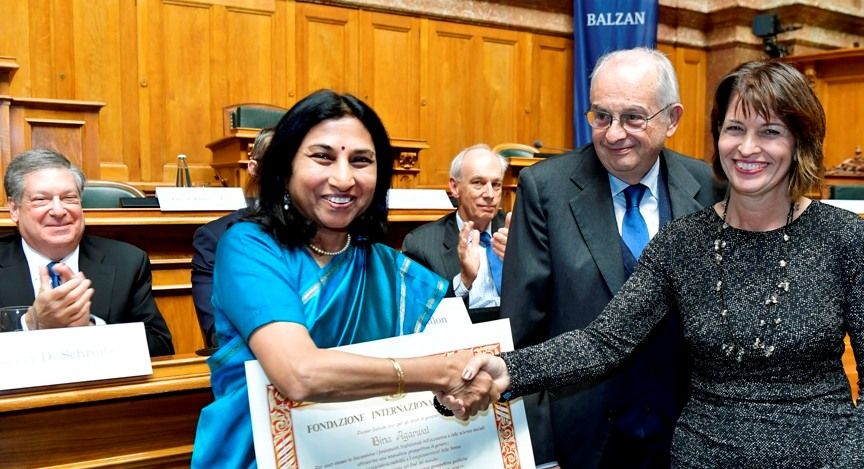
Is gender inequality still on the margins?
Professor Bina Agarwal was recently presented with a Balzan Prize for her work on gender and development.
She was cited for “challenging established premises in economics and the social sciences by using an innovative gender perspective; for enhancing the visibility and empowerment of rural women in the Global South; for opening new intellectual and political pathways in key areas of gender and development.”
Changing migratory configurations: the challenge of our time
This blog originally appeared on the Manchester Migration Lab website
By Professor Aderanti Adepoju, Founder/Coordinator, Network of Migration Research on Africa
In the twenty-first century, the world has come to a crossroads: economically, politically and demographically. In the process, a number of important events or phenomena have shaped the architecture of international migration. These are: globalisation, the economic-financial crisis, the emergence of new market economies, the huge remittance flows from North to South, and also from South to South, the so-called migration crisis of 2015, and the rise of the far right notion of zero immigration. The underlying long-term demographic dynamics of an ageing population in the North and a booming youthful population in most of the South underpin the upsurge of public discourse on international migration and concomitant policy-creation that have propelled migration from an unknown and unregarded realm to a place in the forefront of international political and economic relations. read more…

East Asia, the developmental state and globalisation
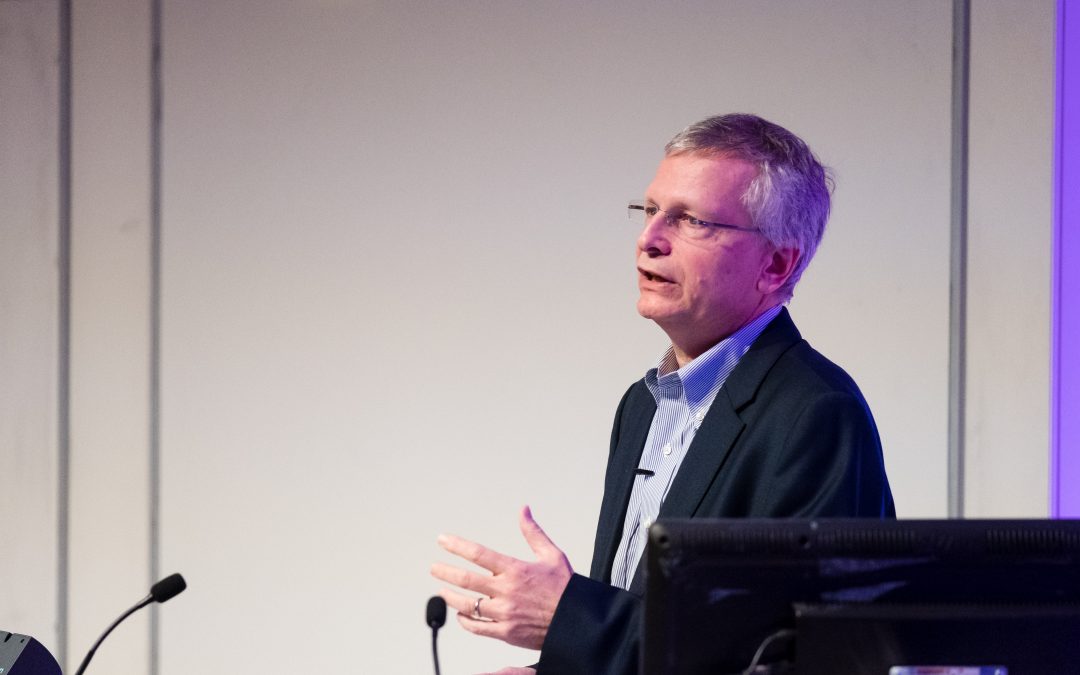
Structural change and premature deindustrialisation: lessons from Dani Rodrik
Alejandra Ortiz Garcia, PhD research Global Development Institute
Last month, Dani Rodrik, Professor of International Political Economy at Harvard University, paid a visit to Manchester to talk about his most recent work and share his views on the current state of affairs in the world. The Harvard professor had a busy few days at the Global Development Institute, delivering the GDI Annual Lecture, a Masterclass for PhD students, a workshop with our academics and was interviewed for the GDI Podcast. Dani Rodrik has been contributing to Project Syndicate for almost twenty years and has had his own blog for more than ten, so I am surprised he wasn’t also asked to write this blog!
The Ford Professor (and Twitter celebrity) touched on several topics that are worth discussing in depth: how globalisation gave rise to the welfare state and fuelled protectionism, how right and left wing politicians have taken advantage of ethnic and social class differences to promote populism, how economists seem to have contributed to tensions arising from globalisation even when economic theory predicted such tensions, and why the premature transition from manufacturing to services in a number of developing countries is likely to stunt their recent spells of economic growth.
Although these are all interesting subjects, I’ll focus on the last one, since it aligns with my research on economic growth and distributive issues in Mexico. read more…
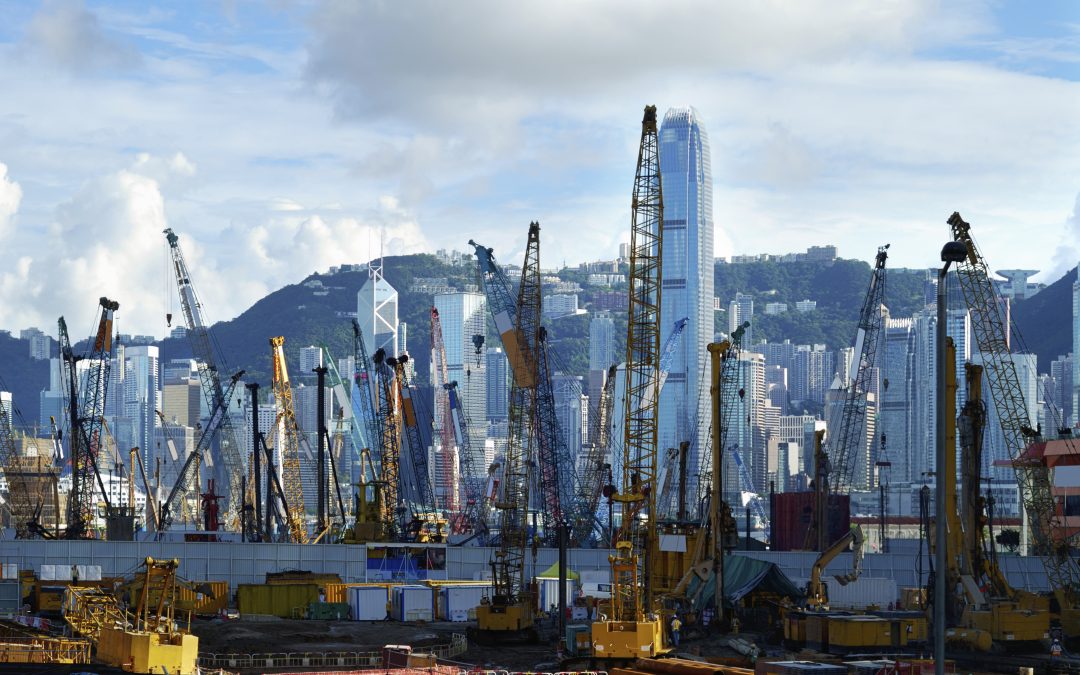
The Rise of South-South Trade: Polycentric Patterns
Dr Rory Horner and Prof Khalid Nadvi, Global Development Institute
In a new, open access article published in Global Networks, we argue that Southern actors and Southern end markets have more prominent roles in global trade, requiring greater attention to the existence of multiple different value chains (VCs) serving different end markets – including domestic, regional and global. A growing portion of the global South’s trade is now beyond that of the global North, as a pattern of what we call “polycentric trade” has emerged.
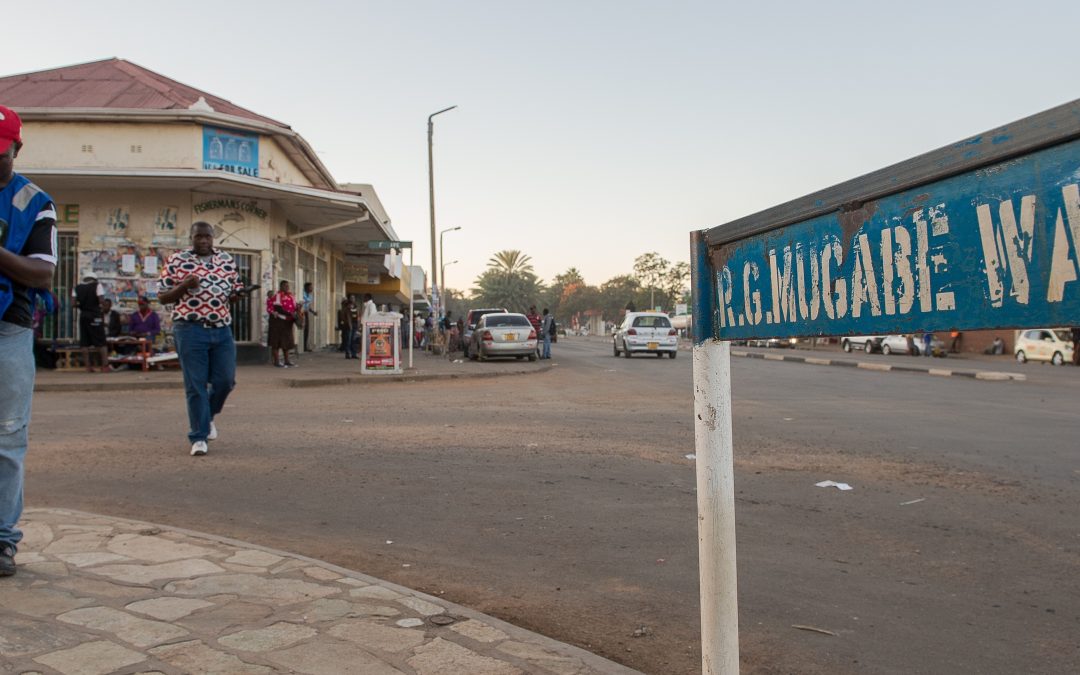
Zimbabwe after Mugabe: three reasons for hope
By Dr Fortunate Machingura, Global Challenge Research Fund Postdoctoral Fellow at Global Development Institute
Robert Mugabe’s resignation, after what looks a lot like a military coup has ended the rule of one of the world’s most fearsome, fierce and long-serving leaders. What hope has this brought to the ordinary men and women of Zimbabwe?
I was born-free, well after Zimbabwe’s 1980 independence from British Colonial rule. I’m still quite young but much older than the 41% of the country’s population that isbelow the age of fifteen. I come from what was then Zimbabwe’s middle class, went to an all-girls missionary boarding school and a high school in the posh northern suburbs of Harare.
Like most young people in Zimbabwe, I imagined a fictionalised, embellished and sensationalised future for myself. Equipped with an excellent education, my dreams were larger than life, almost mystical.
What possibilities there were in the Jewel of Africa, Zimbabwe, the breadbasket of Africa, the centre of art and culture, trade and prosperity. But these dreams faded like popular myths and soon felt like colourful tales filled with excessive romanticism.
Although the Zimbabwean people themselves are little more than onlookers, the march by thousands who took to the streets to demand President Robert Mugabe’s resignation is a spectacle that would have been unthinkable just one week before the military’s intervention. It is reasonable to believe that the coup-like operation has widespread popularity among the population. Most Zimbabweans still carry vivid memories of the violence in the Chimurenga liberation war before 1980, and the widespread feeling this time around appears to be one of relief that a repeat performance has been avoided; that the ‘coup’ (so far) has been not just bloodless but peaceful.
Perhaps now, with Mugabe out, there are reasons to be hopeful once again. read more…
Don’t Mourn: Organize and Theorize Dispossession Thinking Beyond Brexit, Trumpism and Migration Policy Speak
This blog originally appeared on the Manchester Migration Lab website
By Nina Glick Schiller, Emeritus Professor of Social Anthropology, University of Manchester
*Based on Keynote lecture given at the Migration Lab World on the Move conference, this blog is the first in a series which include reflections on the World on the Move conference*
In a fractured political landscape in which impoverished workers seem to be voting and demonstrating their way into fascist movements that align them with the rich and powerful, what can those of us who aspire to social and economic justice do? Joe Hill, a Swedish-American anarchist union organizer of the early 20th century, who was murdered by a government firing squad for his activism, advised us to not ‘waste any time in mourning. Organize’. I say more is needed. In order to organize we need to understand and confront the underlying forces that are moving people into political life. Recent studies of nationalism and whiteness speak to the current situation but doesn’t sufficiently explain why a world-wide nationalist anti-immigrant fervor accompanied by increased support for state led repression and a politics of hate is developing.
I suggest that only by theorizing dispossession can we analyze contemporary political subjectivities that lead in contradictory direction. In some instances, these subjectivities lead to social movements that support and enact racist violence and political repression, while in others the dispossessed unite against all forms of oppression. It was as a migration researcher exploring newcomers’ pathways to social support, employment, and friendship that I begin to understand the relationships between dispossession, political subjectivities and the sociabilities of daily life that lead the dispossessed in two contradictory directions.
My research revealed repeated instances of that relationships formed between migrants and those who offered assistance accompanied not by charity and patronage but by social solidarity. Non-migrants offered migrants was not hospitality based on ‘tolerance for the stranger’. Instead what I was observing were social relationships built on what I have called ‘domains of commonality’ – including shared aspirations to be human beings together (See more on my book here).
Those non-migrants who offered aid to newcomers differed from them not only in terms of ethnicity but also in their higher social status and very different experiences of racialization. Most were people who in current parlance would classify as ‘natives’. In seeking to understand what brought these migrants and non-migrants together on the basis of common aspirations rather than to ‘bridge’ their differences as much of the social integration policies school us to think, I looked at what situations and experiences these seemingly different actors might share. There is a vast scholarship devoted to studying difference. Few people study similarities.
This sociabilities between non-migrants and migrants often was rooted in a shared sense of the precarity of contemporary life and a desire for change. The migrants and non-migrants who formed social bonds shared the experience of various forms of dispossession and displacement. However, the experience of dispossession can be a two-way street in terms of what kind of social movements dispossessed people support.
In order to analyze the processes through which populations were dispossessed of their ‘social means of substance and of production’, which were then transformed into capital, Marx spoke of ‘primitive accumulation’.
He included not only the violent seizure of land and resources during conquest and colonization but also the “parliamentary form of robbery” such as the enclosure of the commons in England. Renaming these processes of accruing capital by appropriating the social means of subsistence “accumulation by dispossession,” David Harvey has argued that dispossessions, especially in the form of urban regeneration and their resulting displacements, have become central to capital accumulation in the current conjuncture. Focusing on recent processes of dispossession in Euro-America allows us to theorize contemporary angers — from Brexit to Trumpism — in which those deprived of industrial employment are also deprived by urban regeneration and restructuring. They are stripped of their homes and businesses as well as vital social services through tax policies that shift public funds to redevelopment and yield vast profits for construction corporations and financial institutions. Meanwhile financialization industries and real estate conglomerates extract capital through payday loans, fines, fees, student loans and a host of new instruments to bilk working people. (See more here).
Migrants also experience processes of accumulation by dispossession in multiple forms around the world— seizures of rural and urban land through ‘parliamentary forms of robbery,’ wars for oil, diamonds, and scarce metals such as coltan (for cell phones and laptops), massive debt repayment to global financial institutions accompanied by new rounds of the destruction of public services, and new rounds of public loans for private urban regeneration. These processes of dispossession and displacement are the underlying forces leading to mass migration. That is to say, both migrants and non-migrants experience forms of displacement caused by accumulation by dispossession. And both migrants and non-migrants struggle for new forms of emplacement through forming new sociabilities that make life meaningful again. (See more here).
But there is a difference between experiencing shared material conditions and understanding and expressing these commonalities. In the research Ayse Caglar and I conducted in Manchester, New Hampshire in the north-eastern USA and Halle/Salle, Saxony-Anhalt, Germany in eastern Germany between 2000-2016, we were able to see how non-migrants searching for meaning and social solidarity in the midst of dispossession might end up mobilizing in two very different directions (Caglar and Glick Schiller, Migrants and City Making in press, Duke University Press).
Taking one direction the dispossessed become part of a globally networked fundamentalist Christian movement that could serve as a basis for a politics of white nationalism. There is a connection between the popularity of fundamentalist beliefs in all religions these days and massive dispossessions being experienced around the world. Before the 2007, when neoliberal policies reached new levels of rapacity in the form of economic crisis in the US, we found African pastors in both cities uniting dispossessed migrants and non-migrants to ‘claim’ their city and the country “in the name of Jesus.’ However, the shock-waves of the new losses engendered by the sub-prime mortgage crisis in a disempowered city such as Manchester ultimately broke this unity so that increasing numbers of white Christians embraced the anti-immigrant racist agenda of US national politics.
On the other hand, some of the social relations of emplacement are bringing people migrant and non-migrant into political movements for social and economic justice. Initially, their shared experiences of displacement and search for belonging led migrants and non-migrants to forge sociabilities in various aspects of their daily life—work place, shared buildings or streets, and the meeting spaces of libraries and social institutions. In Manchester, New Hampshire and Halle/Salle, Germany, families I originally met more than a decade ago have become part of these emerging anti-racist social movements.
Precarity has causes, ones that create the concrete conditions for new social solidarities. These solidarities can strengthen the fascist nationalist and fundamentalist religious tendencies emerging around the world or contribute to globe-spanning movements of the dispossessed who unite to oppose all forms of oppression. This is an area where more research is urgently needed and it must include an analysis of the processes of accumulation of capital by dispossession.
Note: This article gives the views of the author/academic featured and does not represent the views of the Global Development Institute as a whole.
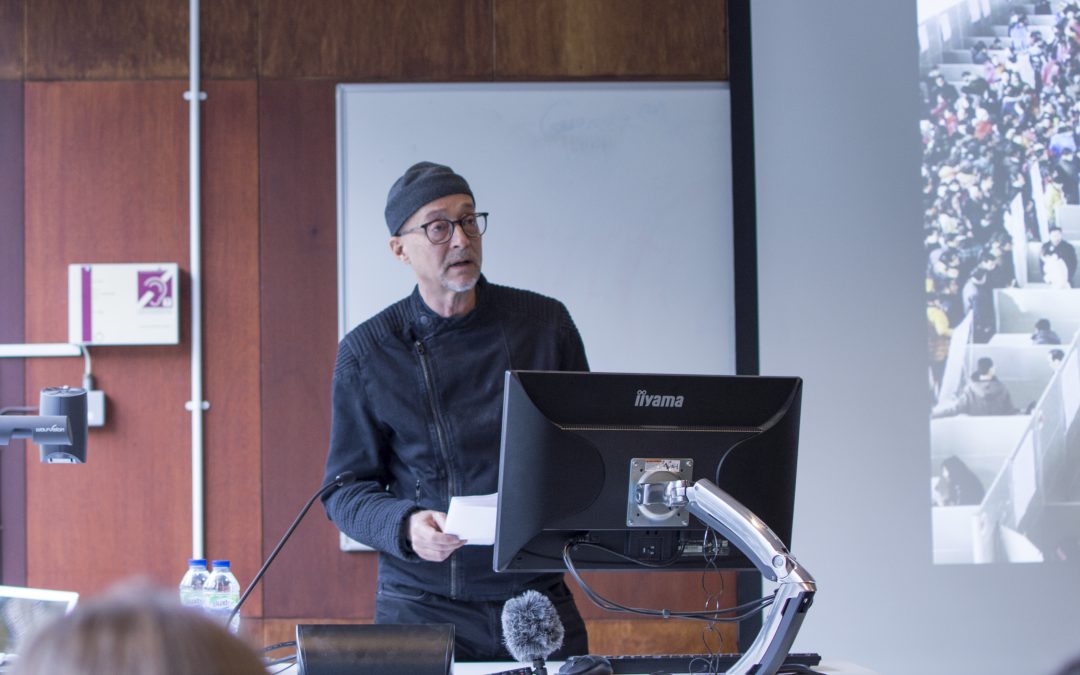
GDI Lecture Series: Collective operations in urban settings with Prof AbdouMaliq Simone
On Friday, 17 November, Prof AbdouMaliq Simone of University of South Australia delivered a lecture entitled Flickering in the dark: Urban tissue as provisional care. This lecture was held in collaboration with the Manchester Urban Institute.
You can watch the livestream below. You can also listen to the podcast below
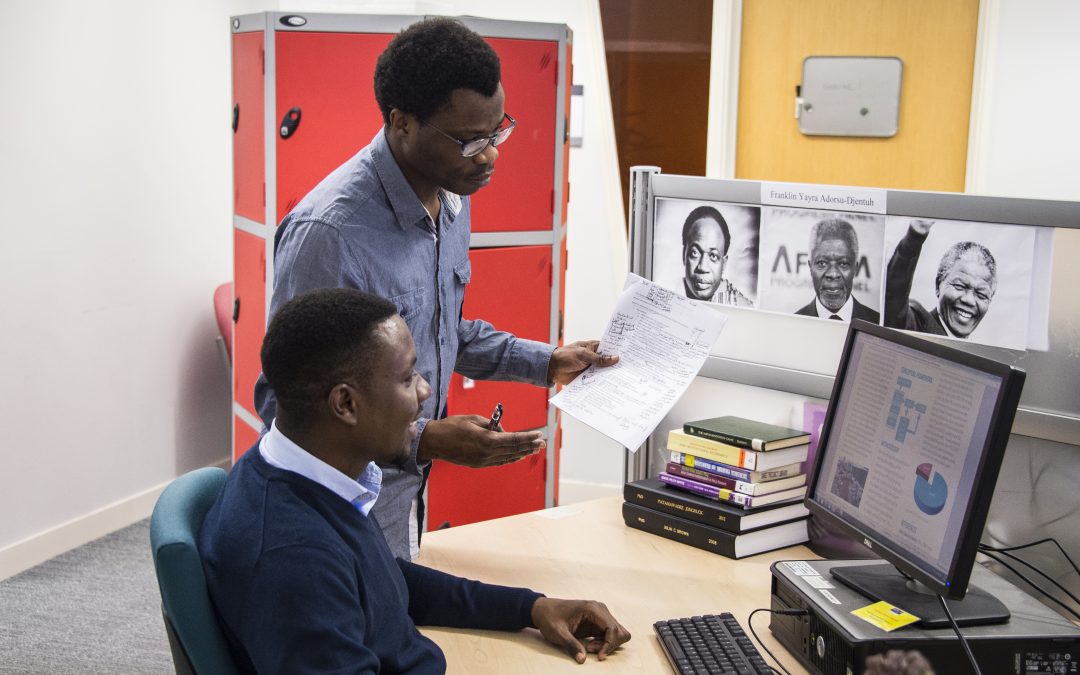
Study for a master’s degree at the Global Development Institute
The University of Manchester will be holding a post-graduate taught open day on 22 November. If you’re interested in studying at the Global Development Institute but can’t make the open day then you can view the presentation below.
